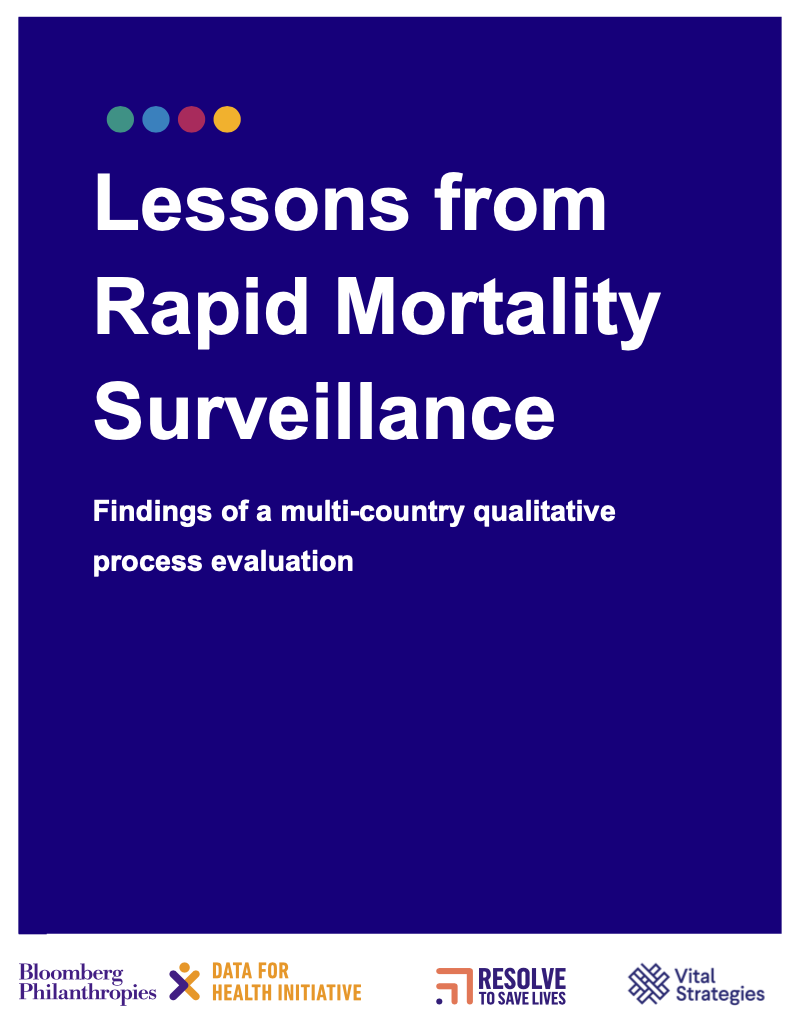This report summarizes local views on the key success factors and barriers to establishing rapid mortality surveillance in 13 countries supported in these efforts by Vital Strategies in the midst of the COVID-19 pandemic. The work was carried out as part of Vital’s Civil Registration and Vital Statistics (CRVS) and Data Impact programs through the Bloomberg Philanthropies Data for Health Initiative and Resolve to Save Lives.
The introduction reviews the problem of tracking the true human toll of the pandemic and the approaches to rapid mortality surveillance employed by participating countries. The purpose and process of the evaluation are also presented, and the and methodology is described.
The results section covers local views on: government ownership and buy-in; data sources and digitization; collaboration and data sharing; integration of mortality surveillance with CRVS systems; and data use.
Recent Abstracts
Effects of Heat on Early Childhood Development
Blood Lead Surveillance of Children and Pregnant Women in Tamil Nadu, India
Sportswashing through Media: Coca-Cola’s Olympic Play – A Research Report
What’s in Our Food?
Mais Dados Mais Saúde
More Data, Better Health – Primary Health Care
Mais Dados Mais Saúde: Experiência De Discriminação Cotidiana Pela População Brasileira
More Data, Better Health – Experience of everyday Discrimination by the Brazilian population
Monitoramento de Estratégias pelo Fim da Violência contra Crianças e Adolescentes
Harm Reduction: The Neglected Pillar of US Drug Policy
